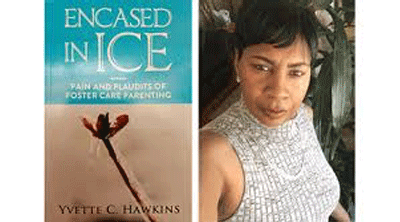May is designated as National Foster Care Month, and one Baltimore resident is sharing her experience in helping to raise nearly two dozen foster children with the help and guidance of the Woodbourne Center, which is located on the former estate of the Enoch Pratt and A.S. Abell Families.
The center opened more than 200 years ago with a focus on treating children with psychiatric and behavior problems and later expanded its programming to include foster care treatment.
“I became a foster parent in 2008 when my daughter went away to college and my husband was traveling and I needed someone to cook and care for,” said Yvette Hawkins, a Baltimore mother who has helped raise 20 children— mostly females. “I called the Woodbourne Center and I took their classes and it was so rewarding.”
She says the center takes teaching and nurturing foster parents seriously, so much so, that it’s like earning a high school or college degree all over again.
“When you take on so many kids and they may be with you for maybe two years and you’re constantly caring for them, even after they’ve aged-out of the program,” Hawkins said. “The thing you have to remember is that they didn’t have the resources when you got them, and you are their primary resource when they leave, and they become family, so you continue to help.”
Hawkins says it’s important to understand the various dynamics involved. She says many of the individuals have experienced trauma, even sexual abuse and their feelings cannot be ignored.
“When I introduce my kids to my family, I say, ‘this is my godchild,’ and that puts everyone at ease because you can’t reveal certain things because of HIPPA laws. It makes it easier and it gives the child the sense that they are family,” said Hawkins.
She is the author of the book, “Encased in Ice: Pain and Plaudits of Foster Care Parenting.” The book offers a myriad of foster parenting strategies and skills to effectively execute and nurture broken, abandoned and mistreated young women, Hawkins said, noting that officials at the Woodbourne Center has used it along with other guides when discussing foster care with potential parents.
Hawkins says the book validates foster parents and the importance of a stable support system for foster children.
“Initially, I didn’t expect it to be this involved,” Hawkins said. “After a year or two, you start telling people that these are your kids. We have grandchildren now so it’s just not one turkey for Thanksgiving anymore, it’s two.”
Hawkins says the biggest challenge she has faced— and probably most other foster parents— is the reunification of the foster child with his or her biological mother.
“Listen, everybody loves their mother regardless of what she may have done,” Hawkins said.
“You find yourself trying to put them on one path and then you find the biological mother pulling them toward another path and we can see what that outcome would be, but your hands are tied at that point.
“You just pray that what you have instilled in them in such a short period of time will stick. And, you just have to let them know that you’ll be there for them no matter what,” she said.
Hawkins says many times foster parents find the child ultimately becoming subjects of the criminal justice system, a hurtful experience.
“You just don’t have a lot of time to work with them,” she said. “But, Woodbourne is awesome. The way they train you on this and there’s really no book on how to raise a child, but Woodbourne is available to you 24 hours a day, seven days a week.”
